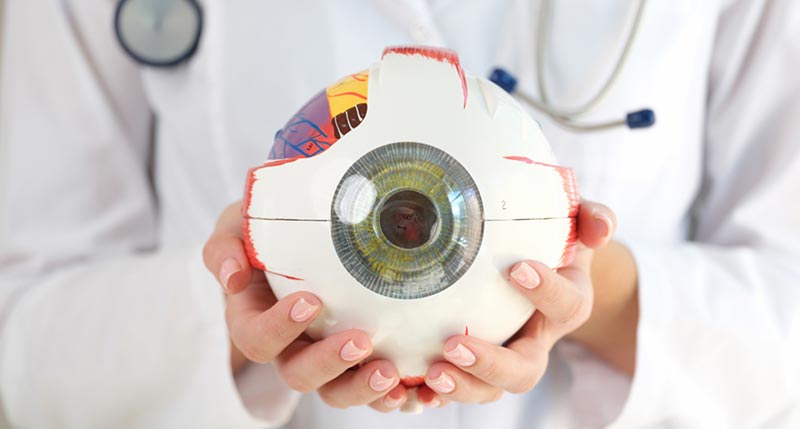The Pros and Disadvantages of Different Refractive Surgeries for Enhanced Eyecare

LASIK Surgical Treatment
LASIK surgical treatment is a frequently carried out refractive procedure that aims to deal with vision problems such as nearsightedness, astigmatism, and farsightedness. Throughout the procedure, a thin flap is produced on the cornea, and a laser is utilized to improve the underlying cells, correcting the refractive mistake.
One of the main benefits of LASIK surgical procedure is the fast enhancement in vision experienced by many people. It is necessary for individuals taking into consideration LASIK surgical procedure to go through an extensive assessment by an eye care specialist to determine if they are suitable candidates for the treatment.
PRK Procedure
The PRK treatment, additionally understood as Photorefractive Keratectomy, is a type of refractive surgery that intends to remedy vision problems comparable to LASIK surgical procedure. Unlike LASIK, which involves developing a flap in the cornea, PRK functions on the surface area layer of the cornea.
One of the benefits of PRK over LASIK is that it eliminates the danger of flap-related problems because no flap is created throughout the surgical procedure. In spite of the longer healing duration, PRK can be an appropriate choice for people seeking vision correction surgery.
SMILE Surgical Procedure
An advanced refractive surgical procedure technique acquiring popularity in the area of ophthalmology is SMILE Surgical procedure. Tiny Laceration Lenticule Removal (SMILE) is a minimally invasive treatment that corrects vision by improving the cornea making use of a femtosecond laser. Unlike standard LASIK surgical treatment, SMILE Surgical treatment entails producing a small incision in the cornea to draw out a lenticule, which causes less disruption to the corneal structure and potentially faster recovery times.
Among the main advantages of SMILE Surgical procedure is its capacity to deal with nearsightedness (nearsightedness) and astigmatism with high accuracy, causing excellent visual outcomes for patients. The minimally invasive nature of the treatment also lowers the threat of problems such as dry eye syndrome, making it a favorable choice for individuals looking for refractive surgical procedure.

LASEK Technique
Having checked out the benefits and factors to consider of SMILE Surgical treatment, an additional notable refractive surgical procedure method worth checking out is the LASEK Method. LASEK, which means Laser-Assisted Subepithelial Keratectomy, is a form of laser eye surgical treatment that aims to remedy refractive errors such as nearsightedness (nearsightedness), hyperopia (farsightedness), and astigmatism.
Unlike LASIK, LASEK does not involve creating a corneal flap. Instead, throughout a LASEK treatment, the surgeon uses a watered down alcohol solution to loosen the thin external layer of the Source cornea, recognized as the epithelium.
Among the primary benefits of LASEK is that it can be suitable for people with thin corneas that may not be great candidates for LASIK. Furthermore, LASEK generally results in minimal post-operative pain and a quicker recuperation time compared to PRK. Nevertheless, the visual recuperation procedure with LASEK may be a little longer than with LASIK.
Implantable Contact Lenses
Implantable Get in touch with Lenses provide a long-lasting vision modification option for people looking for a choice to standard contact lenses or glasses. These lenses, additionally called phakic intraocular lenses, are operatively inserted into the eye to deal with refractive mistakes such as myopia (nearsightedness), hyperopia (farsightedness), and astigmatism. neurologist Andalusia. Unlike standard call lenses that rest on the surface area of the eye, implantable contact lenses function within the eye itself, offering clear vision without the need for day-to-day maintenance or elimination
One of the vital advantages of implantable call lenses is their durability. As soon as put, they can continue to be in the eye indefinitely, providing consistent and steady vision correction. In addition, these lenses can be an outstanding option for individuals that are not website link great candidates for laser eye surgical procedure or who favor a relatively easy to fix vision correction treatment.
However, implantable contact lenses do carry some threats, including the possibility for cataracts or raised eye pressure. It is essential for people considering this alternative to seek advice from with an eye treatment specialist to establish if implantable contact lenses are the appropriate selection for their particular requirements and eye health.
Verdict
In verdict, each kind of refractive surgery has its very own benefits and negative aspects. LASIK surgical treatment is preferred for its visit the site quick recovery time, while PRK treatment might be appropriate for clients with slim corneas.

On The Whole, SMILE Surgical procedure presents an appealing choice for individuals looking to enhance their vision via refractive surgical treatment.